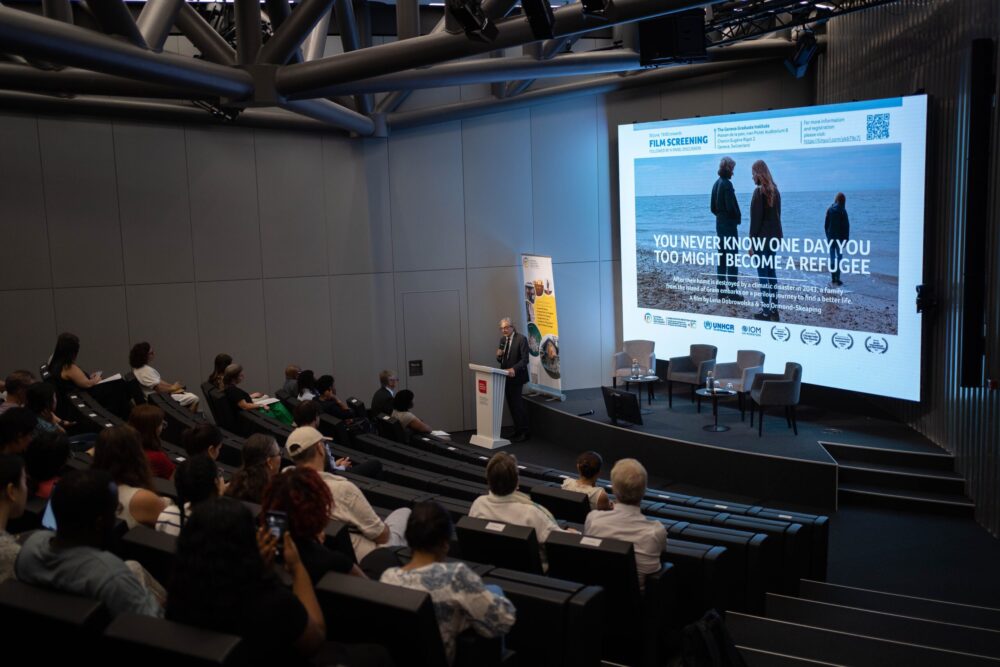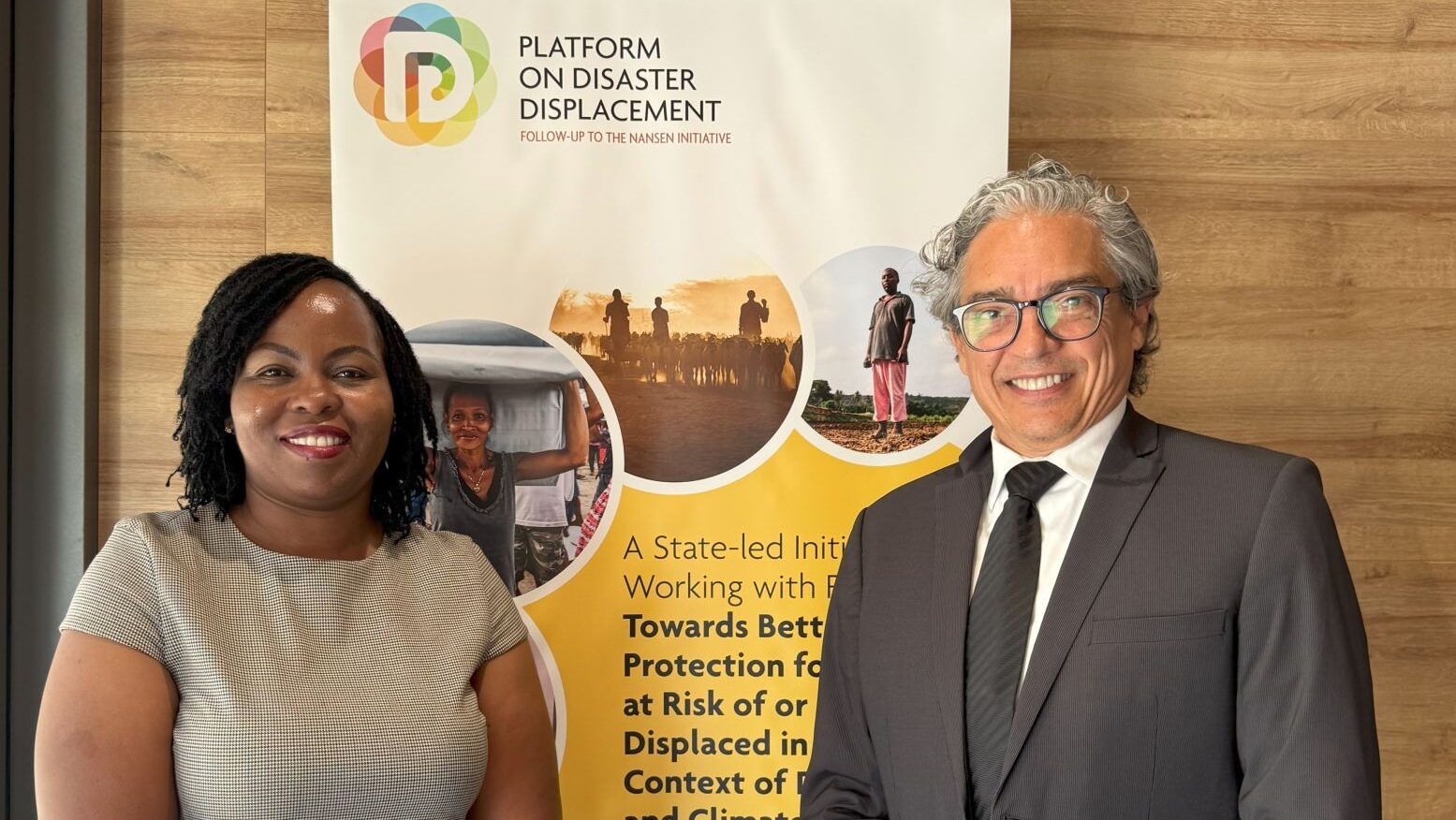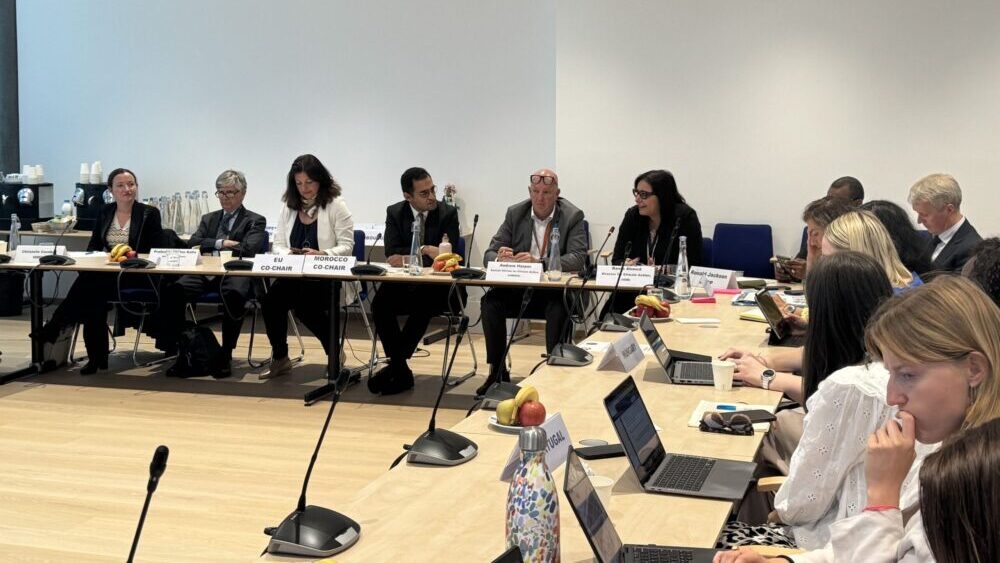Policy Dialogue on Human Mobility, Disasters and Climate Change in the Pacific
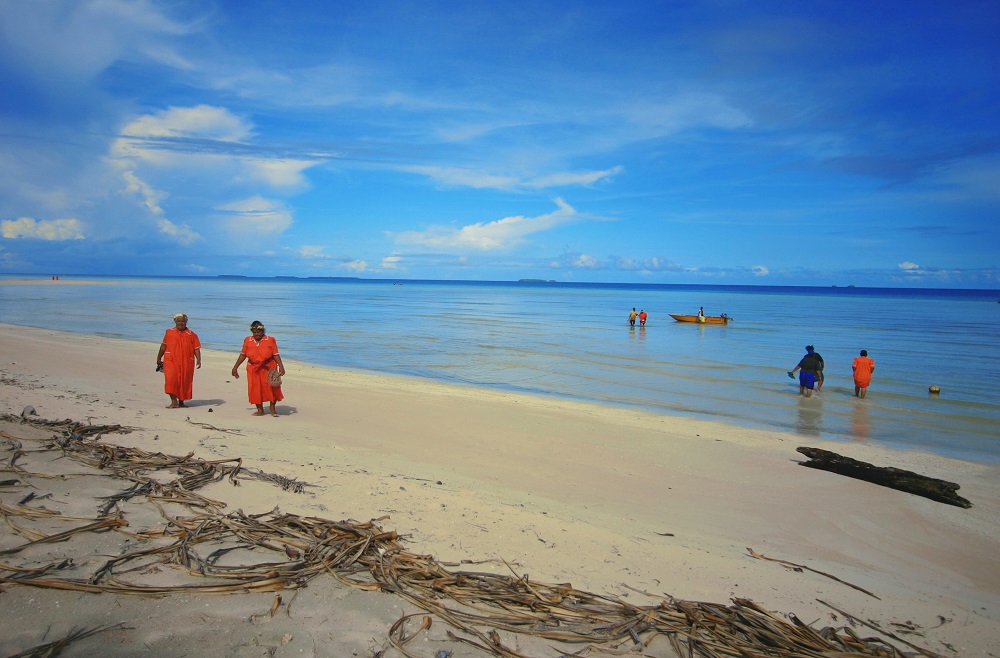
Representatives of Pacific and other countries convened on 24 November 2023 in Geneva for a “Dialogue on Human Mobility in the Context of Disasters and Climate Change in the Pacific Region” with United Nations (UN) agencies and other partners. The Dialogue was co-organized by the Internal Displacement Monitoring Centre (IDMC), the Platform on Disaster Displacement (PDD) and the International Organization for Migration (IOM).
In her opening remarks, Ms. Alexandra Bilak, the Director of IDMC explained that the Dialogue was organized in a timely manner, just ahead of the 28th Conference of the Parties of the UNFCCC (COP28) and right after the endorsement of the “Pacific Regional Framework on Climate Mobility” at the 52nd Pacific Islands Forum Leaders Meeting from 6-10 November 2023 in Cook Islands. While IDMC is convening dialogues on internal displacement since 2018 among Permanent Missions in Geneva, Ms. Bilak noted that this dialogue is the first of its kind to regionalize the discussion, with the objective of fostering exchange, sharing practices based on lessons learnt from regional projects and identifying opportunities for increased collaboration and support to the implementation of the Regional Framework.
Ambassador Ms. Mere Falemaka, Permanent Representative and Ambassador of the Pacific Islands Forum (PIF) to the World Trade Organization and the United Nations in Geneva, presented the recently endorsed Regional Framework that will guide governments’ and partners’ efforts to address the impacts of disasters and climate change on Pacific communities for the years to come. said the Ambassador highlighted that the Framework has been developed in a highly consultative and collaborative effort for the past four years, based on principles of inclusivity and inclusion. Such principles should also guide its implementation in the upcoming years. The PIF Leaders Meeting was also an opportunity to launch the PIF declaration on continuity of statehood and protection of persons in the face of climate change related sea-level rise.
In terms of effective practices from the past, Mr. Manuel Marques Pereira, Head of the Migration, Climate Change, Environment and Risk Reduction Division at IOM, gave an overview of the Pacific Climate Change Migration and Human Security (PCCMHS) Programme. Since 2019, the Programme has been led by IOM, together with the Economic and Social Commission for Asia and the Pacific (ESCAP), the International Labour Organization (ILO), the Office of the United Nations High Commissioner for Human Rights (OHCHR), PDD and the PIF Secretariat. The main focus was on supporting the development of the Regional Framework by leading a consultative process at the community, national and regional levels to bring the voices of affected persons to the center of discussions around climate change, mobility and human security in the region.
Regional Adviser Mr. Nacanieli Bolo (PDD/IDMC) presented the achievements of the Pacific Response to Disaster Displacement (PRDD) project that concluded in December 2022. After three years of partnership between IDMC, PDD and IOM, the project yielded concrete results regarding data and evidence on disaster displacement, public policy support and development, as well as strengthened operational capacities of Pacific stakeholders on the issue.
Both these projects funded by the United Nations Trust Fund for Human Security (UNTFHS) and the European Union (EU) respectively, and carried out under the leadership of Pacific governments. They represent important stepping stones and enablers of the development of the Regional Framework. Their results need to be capitalized on, and additional funding needs to be mobilized for further synergies and in support of the implementation of the Framework.
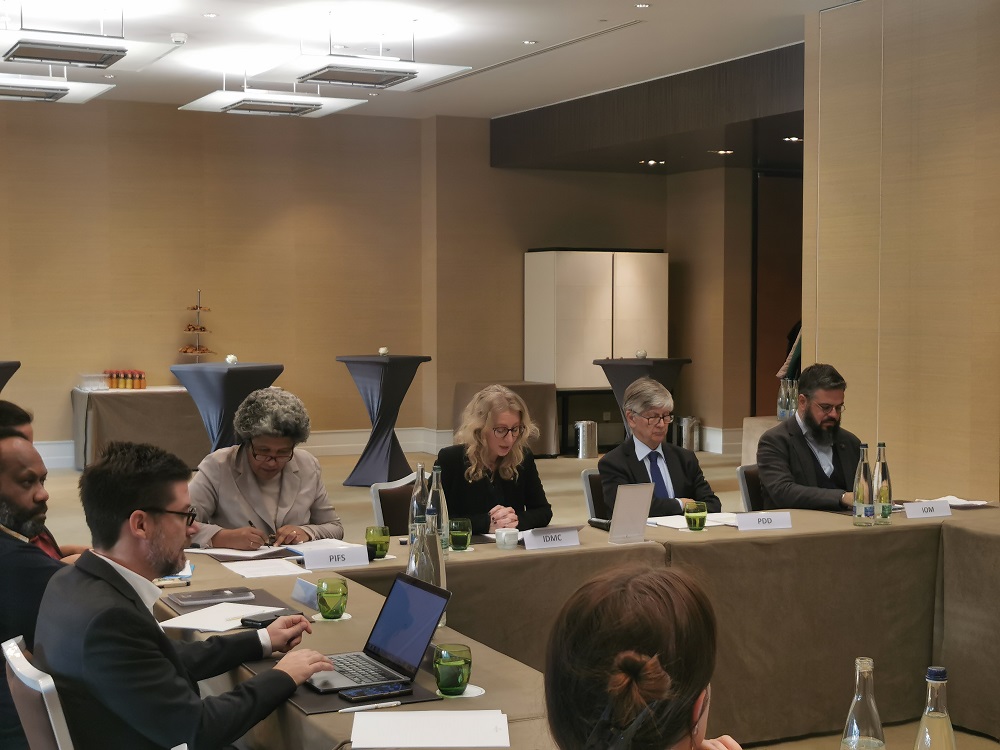
In the discussion moderated by Prof. Walter Kaelin, the Envoy of the Chair of the PDD, participating Ambassadors and other representatives from Pacific Islands, including Fiji, Kiribati, Marshall Islands, Nauru, Samoa, and Vanuatu emphasized the ‘right to remain’ or ‘staying in place’ as the main goal of all Pacific Islanders, in the face of the existential threat of climate change. The international community is called, at the upcoming COP28 and beyond, to do their utmost to combat climate change and allow people to stay in their homes.
PDD Steering Group Members including the EU, Australia and the Philippines commended Pacific countries for their leadership, having been at the forefront of developing policies, strategies and tools at national and regional levels to prevent and address disaster displacement, to facilitate safe migration pathways and to manage planned relocation in cases when movement was unavoidable. IOM, IDMC and the PDD reconfirmed their commitment to support States with the respective data, policy development and capacity building support to address the challenges of disaster displacement in each unique country context of the Pacific.
Attending partners from the two regional projects included the OHCHR and ILO who emphasized the need to remain inclusive and human rights-centered also in the implementation of the Regional Framework and to explore the potential of labour mobility and Just Transition to foster the respective Frameworks and Policy Agendas in the Pacific.
The Pacific region is particularly affected by and vulnerable to disasters and the adverse impacts of climate change. At least 50,000 Pacific Islanders are at risk of being displaced annually by natural hazards. Each year, the lives of millions of people are disrupted by disasters and, as climate change is increasing the frequency and intensity of extreme weather events, the scale of displacement is increasing, too. The Pacific Regional Framework on Climate Mobility is unique in its comprehensive approach to addressing climate mobility and staying in place. It demonstrates the leadership of Pacific islands countries in the fight against climate change and advocacy efforts to ensure the protection of affected communities.
As next steps, regional consultations will be convened to identify priority actions, partnerships and available means for the implementation of the Framework. COP28 will be a critical opportunity to galvanize greater support and ambitious national plans to support this implementation.
Useful Links and Documents
Read Fiji’s Statement About the Regional Framework on Climate Mobility in the Pacific
Download the Pacific Regional Framework on Climate Mobility
Learn more about IDMC’s work in the Pacific here

